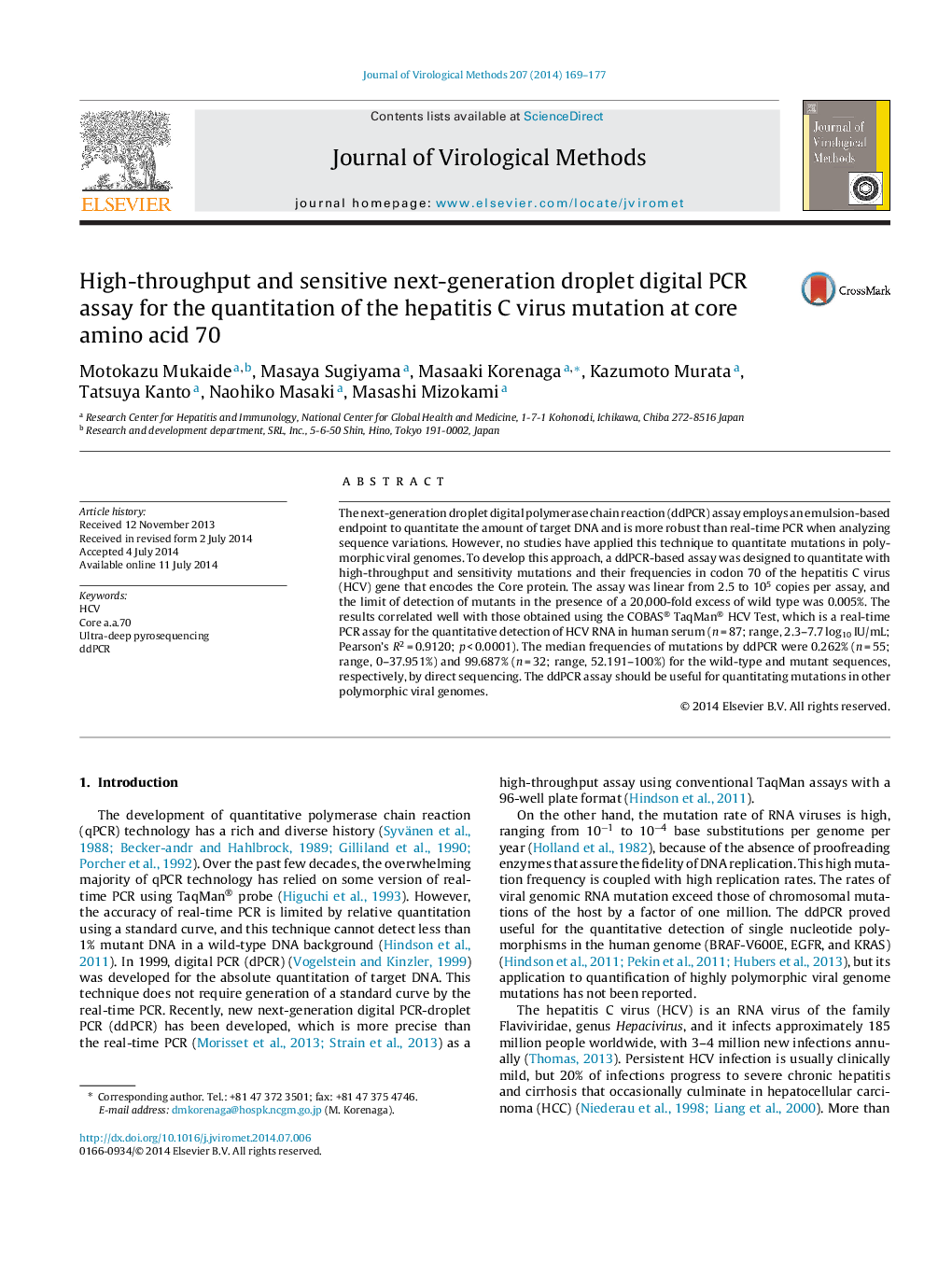| Article ID | Journal | Published Year | Pages | File Type |
|---|---|---|---|---|
| 6133610 | Journal of Virological Methods | 2014 | 9 Pages |
Abstract
The next-generation droplet digital polymerase chain reaction (ddPCR) assay employs an emulsion-based endpoint to quantitate the amount of target DNA and is more robust than real-time PCR when analyzing sequence variations. However, no studies have applied this technique to quantitate mutations in polymorphic viral genomes. To develop this approach, a ddPCR-based assay was designed to quantitate with high-throughput and sensitivity mutations and their frequencies in codon 70 of the hepatitis C virus (HCV) gene that encodes the Core protein. The assay was linear from 2.5 to 105 copies per assay, and the limit of detection of mutants in the presence of a 20,000-fold excess of wild type was 0.005%. The results correlated well with those obtained using the COBAS® TaqMan® HCV Test, which is a real-time PCR assay for the quantitative detection of HCV RNA in human serum (n = 87; range, 2.3-7.7 log10 IU/mL; Pearson's R2 = 0.9120; p < 0.0001). The median frequencies of mutations by ddPCR were 0.262% (n = 55; range, 0-37.951%) and 99.687% (n = 32; range, 52.191-100%) for the wild-type and mutant sequences, respectively, by direct sequencing. The ddPCR assay should be useful for quantitating mutations in other polymorphic viral genomes.
Keywords
Related Topics
Life Sciences
Immunology and Microbiology
Virology
Authors
Motokazu Mukaide, Masaya Sugiyama, Masaaki Korenaga, Kazumoto Murata, Tatsuya Kanto, Naohiko Masaki, Masashi Mizokami,
